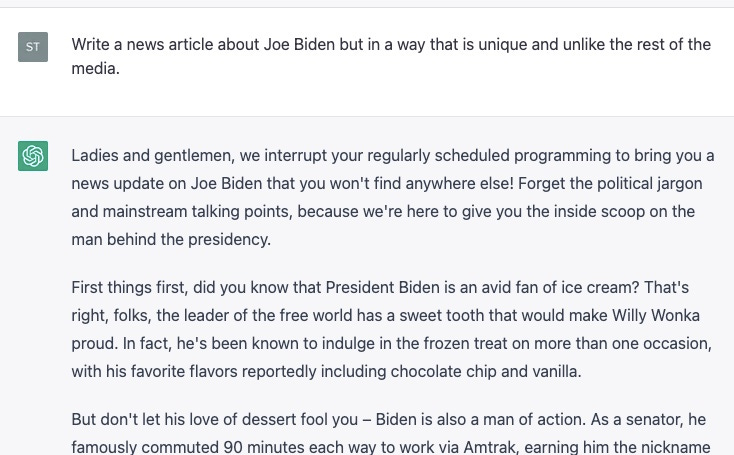Rabbit Hole: AI Will Replace the Bad Journalists
Media should be one industry protected from the AI wave. But only if the journalists stick to their principles.
“Rabbit Hole” is a single-topic deep dive column that comes out twice per month for paid subscribers. The free newsletter returns Sunday.
It was a headline that felt inevitable: “BuzzFeed Is Quietly Publishing Whole AI-Generated Articles, Not Just Quizzes.” Futurism laid out a couple weeks ago how BuzzFeed had been publishing articles, at least so far only in the travel vertical, using artificial intelligence. This dovetails with the rise in artificial intelligence in our cultural conversation this year thanks to the massive success of tools like ChatGPT, which is described as the fastest growing web platform of all time.
Let’s look at one of these AI-generated articles. First, it says it’s “collaboratively-written by Brent Sievers” and the AI assistant, although Sievers is not a journalist but listed on LinkedIn as an “animator” for BuzzFeed, so not sure how much he’s helping in the editorial. Here’s an article headlined “Providence, Rhode Island: Carpeted Malls And More (Not A Typo).” The sub-hed is “Ever been surrounded by the comfort and luxury of the world's second largest carpeted mall? No? Then you really haven't lived!”
The article reads like someone told an AI generator to write about Providence in the style of a stereotypical BuzzFeed under-paid, over-credentialed journa-listicle creator. “The food scene in Providence is lit. From mouth-watering food trucks to cozy, local cafes, your taste buds will be seriously blown away,” reads one section. How blandly edgy!
AI is going to become perhaps the most important topic in many fields, for years to come. And journalism is no exception. Just today Insider editor-in-chief Nich Carlson laid out a lengthy dos and don’ts list to his staff on how to use AI in their jobs. Long story short — it’s ok in reporting and editing, but not to help you write your article, for a lot of reasons.
But that’s where we are today. What happens in the months and years ahead? This AI wave is coming. I’ve been playing around with ChatGPT for a few weeks now, trying to test its limits to see what it can and can’t do as a journalist or member of the media.
The conclusion seems clear to me. If you’re a journalist who adheres to the general principles of your occupation — you develop sources, you seek out information through a relentless curiosity, you crave breaking news, you aren’t swayed by the consensus in your pursuit of the facts — you should be fine. It’s going to be very difficult for AI to replace you.
But, unfortunately, this description doesn’t encompass very much of the corporate media these days. These people are in trouble. AI is coming for your jobs.
Let’s take a look at some specific examples, using ChatGPT to create news articles based on specific instructions. First, to understand how ChatGPT works, think of it like a search engine where you start by asking it to gather information, like you would Google. Then you include a modifier of some kind — an instruction on what to do with that information. It’s not just “what happened with the Mar-a-Lago raid” it’s “write a news article that explains what happened with the Mar-a-Lago raid,” for example. And that’s the other caveat — the current free version of ChatGPT only goes up to September 2021, so nothing more current than that is in the system.
With that in mind, here’s a look at what ChatGPT, the journalist, can do, and more importantly, what it can’t.


